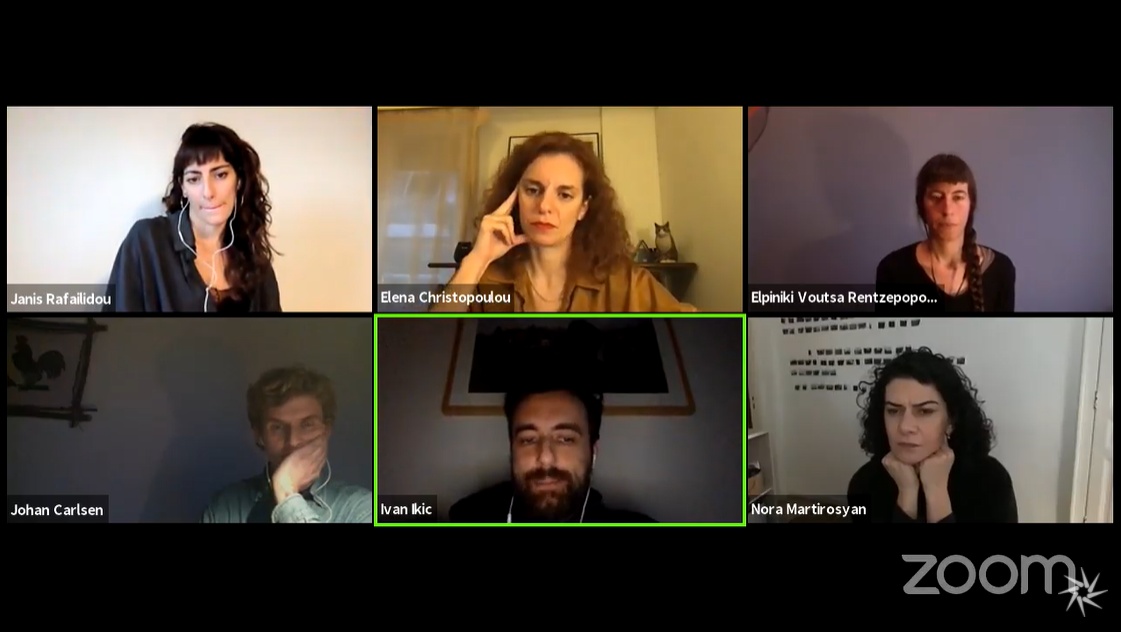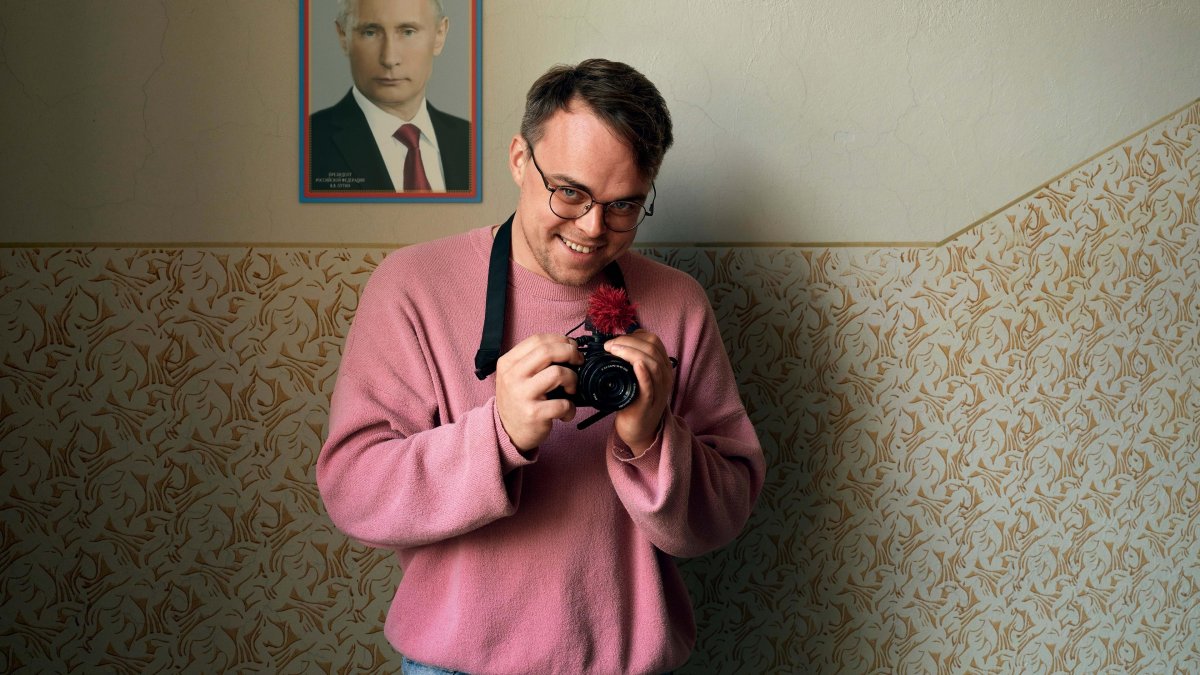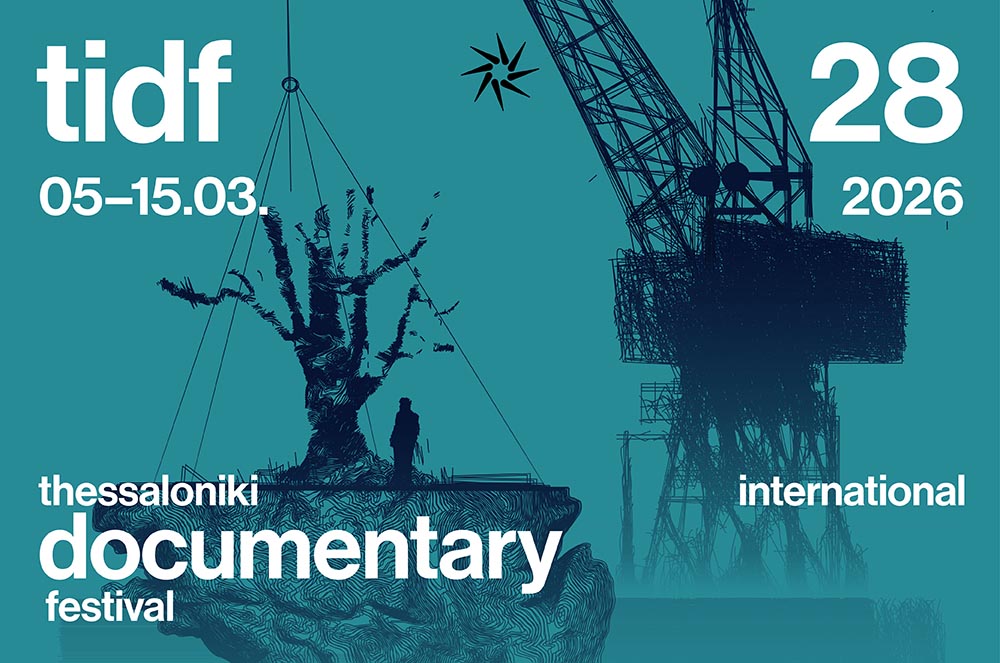61st Thessaloniki International Film Festival || 5 - 15/11/2020
Directors’ Corner: Thursday November 12th
The fourth in a series of online meetings, open to public, hosting directors of both competition sections, International Competition and Meet the Neighbours, as well as directors of the Greek films of the 61st Thessaloniki International Film Festival, was held on Thursday November 12th, at 17:00, on the Festival’s YouTube Channel.
The audience had the opportunity to meet the directors: Janis Rafailidou (Kala Azar), Johan Karlsen (Death on the Streets), Elpiniki Voutsa- Rentzepopoulou (Who Will Be Eaten), Ivan Ikić (Oasis) and Nora Martyrosyan (Should the Wind Drop). Elena Christopoulou moderated the discussion, held in the frame of the Agora events.
Elpiniki Voutsa- Rentzepopoulou was the first to speak: “Who Will Be Eaten is my first movie, my first feature film. The film has to do with the refugee crisis. It is about the relation between refugees and people who are trying to help them, to be near them. What is the role of the European Union to this crisis? I try to involve the myth of Cronus to this film. Cronus was eating his children, and war is eating children, too. I am trying to combine this myth with the refugee crisis”.
Janis Rafailidou talked about her film, Kala Azar: “I am the director of Kala Azar that takes part in the International Competition. This is my first feature. The film was made in Greece and it’s a Dutch co-production. It’s set in Greece, but it’s a film that doesn’t want to be site-specific, it is kind of timeless and doesn’t try to reveal a particular place. It has to do with the anarchy of the landscape, incidents that are kind of autobiographical, road kills, stray life, animals lying dead in the landscape. There are elements of these stories that come from my personal experience and my research as an artist. But it is also something that became fiction, in an attempt to talk about life, death, humans and animals. It’s a film that starts with a story of a couple, but slowly drifts away from the main characters or from any characters at all and takes you to another place, where you can look closer at what we often bypass, what we haven’t learnt to observe. Usually, that’s a non human life, a life that belongs to other bodies that are different to ours”.
“My name is Johan Carlsen and I have made a film, called Death on the Streets, along with my wife, Micah Magee, who produced the film. It is a very simple film, about a young father who is living in the huge flat plains of the United States of America. He is working as a farmer and is left out of work, because the region has been industrialised. It is a very specific story, quite concrete, made with all the available tools we had in our hands. We used the locations and the actors we could find. I am from Denmark, my wife is from the United States, and I got to know this place through a blend of falling in love with my wife to be and the fascination the US oozes to someone from Europe, and specifically to someone from the North of Europe. Ιt didn’t take me long to familiarize with the anarchy and the disorder of the United States. If I were to describe this system, I would name it a “let people fail” system, which is something that our system avoids to do. That’s the contrast, me coming from a democratic and well-functioning North European country, falling very much in love with the characters and the places almost blunt and quite often stereotyped. I have met very kind people, who are both comical and absurd in their insistence, independence and self-reliance clichés. It is easy to make fun of these people, but soon enough you learn that all these people you laugh at, they are risking something, maybe something you are not risking in your own life. So, this is something heroic for me. We have tried to make a simple story of an unemployed farmer who falls through the system until he is left homeless, something terrifyingly common in the States. So, this is a simple story blended with a primitive anarchy approach.”
Afterwards, Nora Martyrosyan spoke up: “It’s a co-production between France, where I live, Armenia, where I come from, and Belgium. The film is taking place in Armenia and the shootings were realized in the self-proclaimed independent republic of Nagorno Karabakh, in 2018, a region found on the front pages due to current political troubles. It is my first feature, set in a place I know, which has all the infrastructures, but doesn’t exist in terms of international recognition. The film is about the hope of recognition. Some days ago, the war proclaimed by Azerbaijan and Turkey 48 days ago ended up with the collapse of the Republic and the defeat of the Armenian army, so this is a very particular moment to show this film, a film that speaks about peace and hope. It’s great that the film exists because the country will probably stop existing. The centre of the film became the International Airport of Nagorno Karabakh, where a French auditor, responsible for giving the green light for the opening of airports, arrives, not really knowing what he is going to encounter. Through his eyes, his ignorance, and his slight interest evolving to a very strong sympathy, we discover the place, the country, the hopes, and the fears of the people there. In parallel, there is a story of a boy, who is going through the country, always carrying huge bottles of water, which he sells as magical water. And people actually believe him. Reality can be often surpassed by hope”.
“I am Ivan Ikić, I am the director of Oasis that participates in the “Meet the Neighbors” competition. This is my second feature film. It takes places in an institution for intellectually disabled people. It is about a tragic love triangle that takes place inside these walls. It was made with real residents of the institution in the main roles. They were not playing themselves, but the roles written in the script. It is not a documentary or a documentary-based film, but something based on real life. It’s a love film; it’s very passionate and enigmatic”.
“Your films have to do with the voice of others, specifically the voiceless. Whether it is the animals, people in the fringes of society, in Kala Azar, or the teenagers of the institution in Oasis, or the unemployed and homeless in Death on the Streets, or the refugees in Who Will Be Eaten, or a kid living in a remote area of a godforsaken country that no one pays attention to. I was wondering to which inner part of you the film is connected to”, Elena Christopoulou asked the directors.
Ivan Ikić answered first: “I visited a similar institution to the one in the film 15 years ago. It was a very emotional moment when I realized that there is a closed world, not connected at all with the rest of the society. It’s something like life imprisonment without a crime or a penalty. You are living in the institution and you don’t have any prospect of ever leaving. The emotion of being trapped, even though not guilty, was something that really inspired me to spend much time there, to make my research, to meet all the residents, to find out their stories. I made a documentary back then, in the same institution. Subsequently, I had the idea of doing a fiction film, but I couldn’t find a proper way to do it. When I got back to the institution to find the cast, I had the same feelings as 15 years ago. I recognized people who were kids 15 years ago and they are grown-ups now, always in the same place, without any hope of leaving the Institution. This was very inspiring to me and I started thinking about how our lives would be if we shared the same emotion. The film was shot last year and I couldn’t foresee that all mankind would find itself in the same situation as the characters in my film. We are now under surveillance, and told what to do and how to do it. There is an external danger all around us and we are trapped inside, scared to death, we can’t leave our houses. Life is dangerous. There are similarities with the film of Nora Martyrosyan”.
Nora Martyrosyan took the baton: “It took me eleven years to make the film. While learning the language, as well as through understanding, loving and feeling these people, I said to myself: “you need to give voice to the voiceless”. The film should be made, it should be a feature film, and it should be screened at the best Festivals. This was the only way to give existence to a country that doesn’t have political existence, but can have another kind of existence through cinema. Something had to be done and I had the feeling that I was the one to do it, because I have this double identity, hence a double understanding of the situation. I don’t want to sound arrogant, but I saw the completion of this film as a mission. I worked my way to ensure the funding of the film; I had to find a way to do the shootings there. People in the French film commissions and Eurimages were asking me about the main character and I kept telling them that the main character is the country. The shootings of the film had finished and just before its release the war started. I didn’t know how to deal with, how to defend my film. A few days ago, the war ceased and I am voiceless again. I can tell you the story of my film, what I wanted to do, but now I have to learn from scratch how to deal with my film, how to defend it”.
Afterwards, Elpiniki Voutsa- Rentzepopoulou stated: “I believe that my film doesn’t have to do with the voiceless. Refugees have a voice, they speak, animals speak in their own way too, but the biggest part of society chooses not to hear. In my film I present things from our side not from the side of the refugees. There are two main characters in my film. The one cares about the refugees and the other doesn’t any more. Before 2016, I was a person who didn’t want to do things, things for the common good, whereas from 2016 and onwards, I decided to be the other character of my film”.
Janis Rafailidou stated: “I am thinking of what has been said about the voiceless. In Kala Azar the idea was to make a film that it wouldn’t be logocentric. In the logocentric world, language is either narrated through a voice or through a dialogue. The way we understand language as humans, the form of communication we build upon language, the use of a voice in order to understand the world, to observe the world, to approach the world and cinema itself, how we approach a story in a cinematic way. The film tried to build a layered world that doesn’t need any form of language. You take some text, some spoken words, but they don’t add anything to the narration; they are just sounds, or a part of the characters, movements or even some actions. I opted for details, connections, and hybrid forms that connect human bodies to animal bodies, to the landscape, to our actions, rather than using language or the absence of language, as the main way to describe a landscape. The sounds of nature prevail in Kala Azar. I didn’t want my film to be didactic in my attempt to describe a landscape, or the story of a place, or bodies in a landscape. I tried to do that through cinematography, through observation”. I would say that Kala Azar maps out a place, it attempts to produce knowledge, it tries to describe a place through image, through observation”.
According to Johan Karlsen: “In my film I wanted to show all these invisible things that are surrounding the characters. The camera is constantly aiming at characters, amidst the loudest nation in the world. These people are doing the wrong thing, that’s my attraction. The main character does the wrong thing, refusing any kind of help. In this sense it’s a simple comedy. That’s my personal connection to this country. I didn’t make the film to please people or displease them. I want all these people in the US, the Republicans, to see this film, all these people that we mock a little. This is a film for them. This film is a piece of loving violence we give back to the people of the United States, because I am in love with things that don’t make any sense. I am thinking about Nora’s horrible experience in her attempt to make her movie. It’s really a miracle when something springs out of this hardship. In Europe, even for small independent film productions, you have to ask for many permissions; that is not surely the case in the United States. I want to go to the cinema and watch a director who is not going to be nice to me, who didn’t ask permission to make the film. In my country, we think we can organize life and that scares me, because life makes its own arrangements. What is stupid in the United States is that they insist on not learning and I find that feature very attractive. I would like to unlearn some things, as well.”
Janis Rafailidou’s question to Ivan Ikić was on how he got attracted to this place, to these people, whether there’s a personal story behind it. Ivan Ikić replied: “I first visited that institution by pure chance and I returned there after many years. Even though societies successfully deal with various problems, they don’t know what to do with intellectually disabled people. These people are very subversive, they don’t believe in any rules imposed by society. That’s why I really liked them from the start. They are breaking the rules of what is socially accepted or not, and this is what inspired me. Afterwards, I met many people, and I somehow became their friend because they are honest and they let me enter in their world. The institution is strangely enough a place that you feel alive, whereas the world we create is totally dehumanized. Our real routes are preserved there, in that institution”.
Nora Martyrosyan added: “I think that when you are making a film about people living in the margin of the society, whether they are refugees or those who vote for the Republican Party in the United States, or even intellectually disabled people, there is an important ethical question. Where do you stand? Do you play by their rules or by society’s rules? According to Ivan Ikić: “There are no rules. I have made this film from the perspective of these people in the institution”. As to Johan Karlsen: “The perspective of my film is my own perspective, a rather stupid perspective. A person who is striving to survive, while trying to work out what is going on in his life”.
An audience question addressed to Elpiniki Voutsa-Rentzepopoulou came up next: “Would you identify the French scene as well as the German scene in your film as surreal?” Elpiniki Voutsa-Rentzepopoulou answered: “Yes, I believe that these scenes are surreal, as you can see different things happening compared to what is happening in the whole movie. However, these two dialogues are the most realistic in the entire film because they depict the way the French government treats other countries and the way the German government deals with the refugee problem. The dialogues are realistic, but the way these scenes have been shot is surreal and funny, so that the audience can easily understand and accept them”.
“The Trump era was of a particular interest to you?” was a question for Johan Carlsen, who replied: “Yes, he is everywhere, but you don’t want to mention his name. This is definitely the context of the Trump era, but I must say this has nothing to do with Trump. This idea of this film came to me during the Obama administration. This film has to do with more fundamental notions of the United States, and Trump is merely a tool in the wider context. I don’t think that these things will change. I don’t think that the United States fits in the definition of a country; it is rather a State of being. In the United States people have a very superficial and empty illusion of a country that it doesn’t really exist, but that’s extremely beautiful from my perspective. I don’t think that the new President will bring any change at all”.















